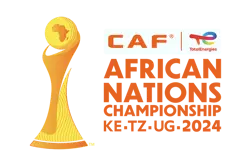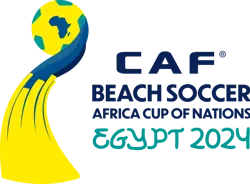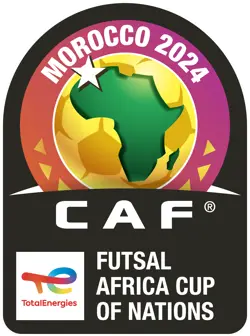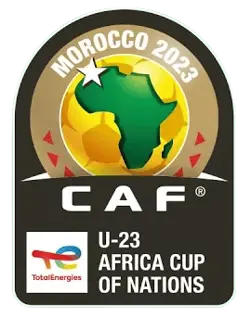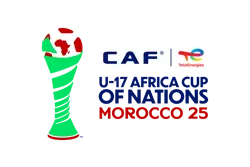Tactical analysis: How Morocco’s clarity and ruthlessness led to historic third CHAN title
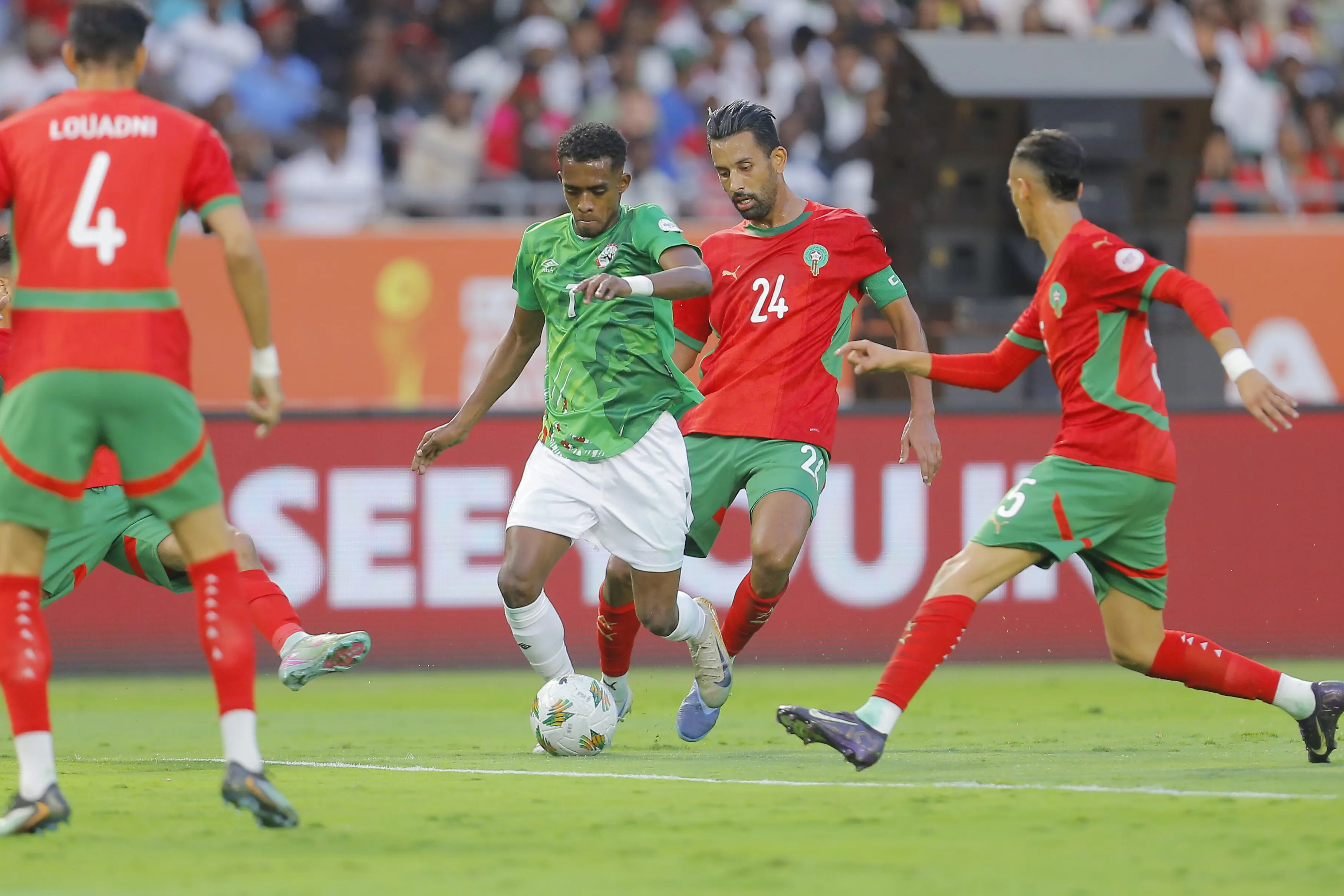
Oscar Rabson Mirambo has revealed that Morocco's title win of TotalEnergies African Nations Championship (CHAN), PAMOJA 2024, reflects a pattern visible “from the group stage to the final”.
The member of the CAF Technical Study Group (TSG) added that the Atlas Lions' clear game plan, clearly defined roles and unwavering commitment to their playing identity helped them to the title success in Saturday's final.
Morocco beat Madagascar 3-2 in a gripping TotalEnergies African Nations Championship (CHAN) PAMOJA 2024 final at the Moi International Sports Centre, Kasarani, to lift a record third crown.
Oussama Lamlaoui scored twice — including a 40-yard winner that caught Michel Ramandimbisoa off his line — to finish as the tournament’s top scorer with six goals.
The Atlas Lions claimed the gold medal and USD 3.5m prize, while first-time finalists Madagascar took silver and USD 1.2m.
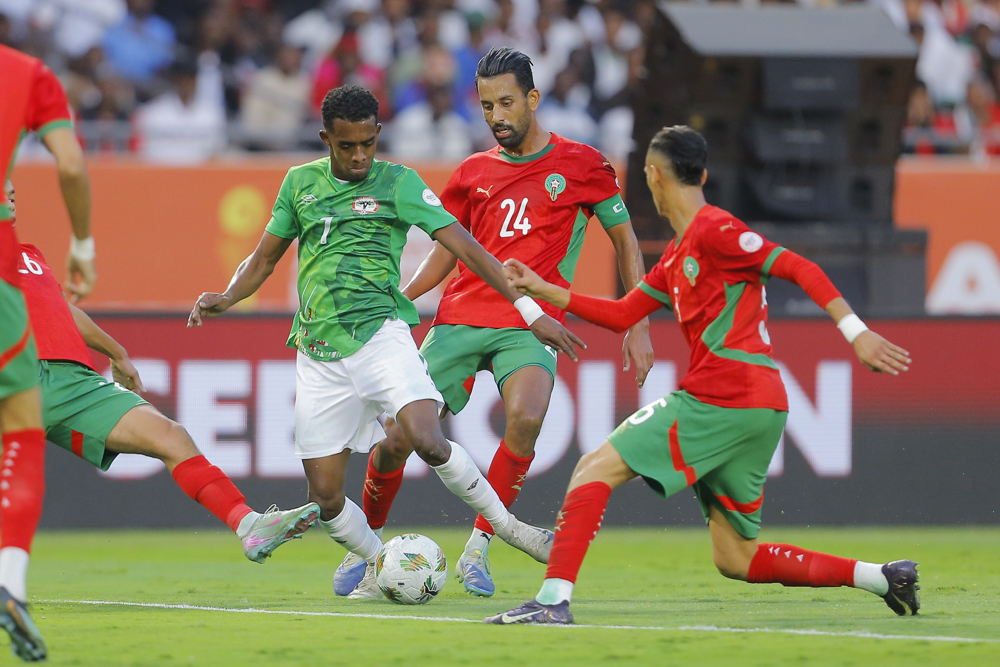
For CAF Technical Study Group (TSG) observer Mirambo, the outcome reflected a pattern visible from the start of the competition designed only for home-based players.
“Morocco had a clear strategy for how to approach every match and very clear roles for each player,” Mirambo told CAFOnline.com.
“They played to their strengths rather than worrying about the opposition, and they kept their philosophy alive under pressure.”
The goal. The scorer. The moment. All historic. 🏆
— CAF_Online (@CAF_Online) August 30, 2025
Lamlioui’s title-winner is the @1xBet_Eng #GoalOfTheDay! 🇲🇦#TotalEnergiesCHAN2024 pic.twitter.com/QN2skgguS8
Clear strategy, clear roles — and a team that never panics
Mirambo’s central theme is simplicity executed with conviction.
He highlights how coach Tarik Sektioui’s side set responsibilities position by position, which gave the team structure in and out of possession and allowed them to ride out momentum swings.
Even when Madagascar struck first through Félicité Manohantsoa inside nine minutes, Morocco did not break stride.
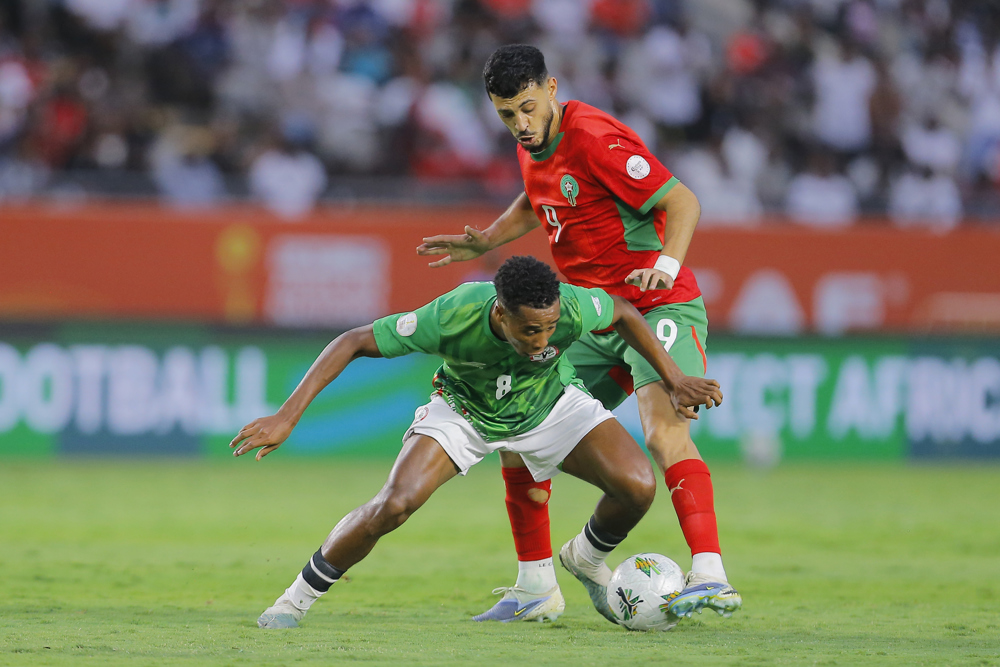
They equalised via Youssef Mehri after fine link play from Khalid Baba, then moved 2-1 up through Lamlaoui.
When substitute Toky Rakotondraibe levelled for Madagascar in the second half, Morocco leaned again on the same principles: regain control, manage transitions, create the next chance.
“Their mentality was important,” Mirambo said.
“They don’t settle for less and they don’t give up. Even in their only defeat in the group, the team created chances and looked the better side in open play — the issue was finishing. In the final, the conviction stayed consistent from the first minute to the last.”
Transitions: from composure to incision
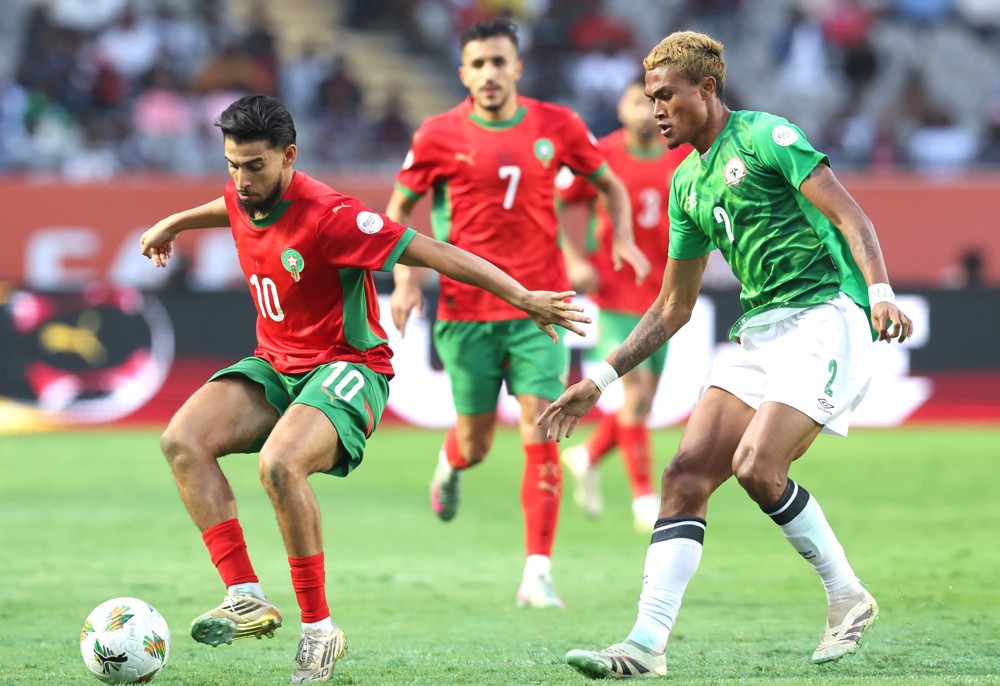
Against Senegal in the semi-final, Morocco survived long spells of pressure by trusting their first line to play from the back and by protecting the ball under an aggressive press. Mirambo saw the same maturity in the final.
Madagascar sought to control tempo with short and medium passing. Morocco’s response was twofold: composure to circulate under pressure, then acceleration once space appeared behind the first press.
When the Barea were balanced, Morocco built patiently through Mehri and Sabir Bougrine; when the Malagasy block was stretched, Morocco attacked quickly and vertically through Lamlaoui’s runs and the wing-backs’ advanced positions.
“Players in Morocco’s defensive block played calmly under pressure — using back or lateral passes to draw the press — then released beyond the pressing line,” Mirambo explained.
“They can keep the ball, or they can go fast. That variety in transition phases made the difference.”
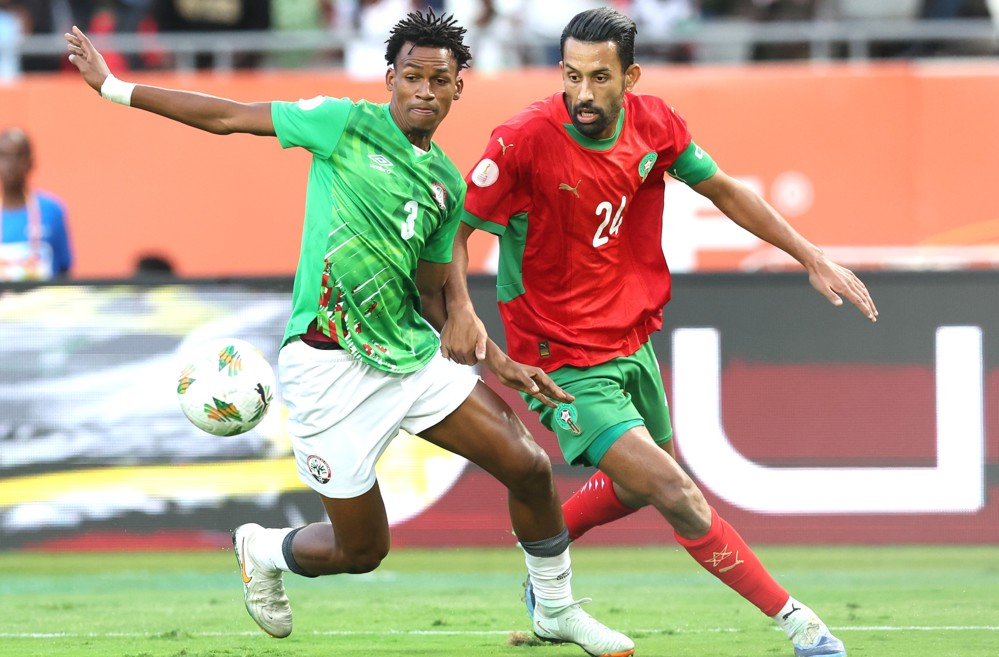
Midfield control and the value of repetition
A hallmark of Sektioui’s team throughout PAMOJA 2024 was the midfield’s ability to dictate rhythm for long stretches.
In Nairobi, Mehri’s receiving positions between lines and Bougrine’s timing to step forward gave Morocco the flexibility to switch between patient possession and direct entries into the box.
Mirambo underlined how this repeated pattern — circulate, fix defenders, then find the next vertical pass — steadily wore down opponents without Morocco losing defensive balance.
“The rhythm of transition demanded physical, mental and technical presence for 90 minutes and beyond,” he said.
“Morocco’s experienced midfield handled that load. It wasn’t just talent; it was the discipline to repeat the right behaviours.”
Lamlaoui: movement, timing… and a 40-yard exclamation point
Not on the tactics board. But definitely on the coach’s face. 🤯#TotalEnergiesCHAN2024 pic.twitter.com/FY57vXlzf8
— CAF_Online (@CAF_Online) August 31, 2025
Strikers decide finals and Lamlaoui did just that. His first goal showcased penalty-box instincts; his second, audacity and awareness.
With Madagascar pushing high for a late winner, the forward recognised Ramandimbisoa’s advanced position and, from around 40 yards, delivered the strike of the tournament — a goal that settled Moroccan nerves and sealed the title.
“Madagascar will account for Lamlaoui’s finishing,” Mirambo noted, “but Morocco’s attack is collective. In their finishing phase, more than one player can be decisive. That unpredictability is hard to defend.”
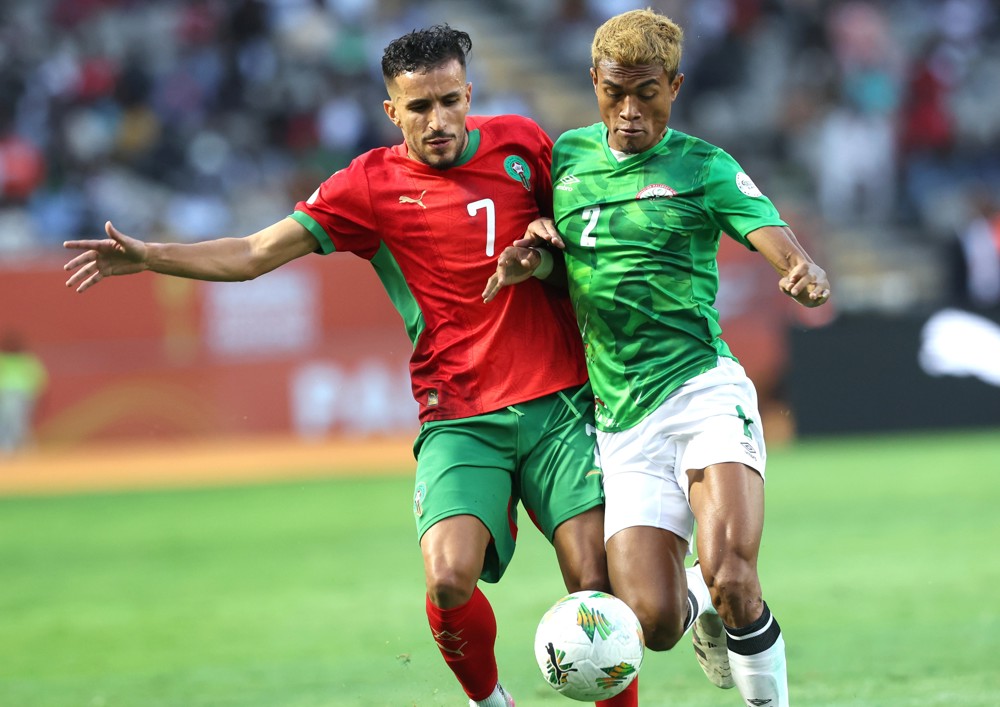
Madagascar’s rise is real — and instructive
Romuald Rakotondrabe’s team arrived at their first CAF senior final on the strength of unity, resilience and sharp late-game management, having edged Sudan in extra time in the semi-final.
In the final, they mixed containment with brave spells of possession, found two equalising moments and threatened on counters to the end.
Mirambo praised their tactical maturity — especially the long period spent at 10 men against Kenya earlier in the tournament — and pointed to a clear psycho-mental profile: calm, patient, cohesive.
“Playing with ten for a long time and still advancing showed maturity and defensive organisation with strong mentality,” he said.
“Madagascar were excellent at staying calm to strike late. In this final they met a team with more individual and collective attacking weapons — but the Barea’s development is evident.”
Development pathway and coaching continuity
It was all about this moment. This moment was all about them! 🇲🇦 🏆#TotalEnergiesCHAN2024 pic.twitter.com/oVaq0fCpC4
— CAF_Online (@CAF_Online) August 31, 2025
Beyond the 90 minutes, Mirambo linked Morocco’s success to sustained investment in youth development and coach education — the foundation beneath the clarity seen on matchday.
“Morocco are investing heavily in youth football, and we are now witnessing a team hard to compare with others in the quality of players and the quality of coaching,” he said.
“Other African countries can study the process: preparing players and teams with a clear pathway translates into habits that hold under pressure in tournaments.”
Sektioui’s work has been precisely that: embedding habits. His Atlas Lions travelled across all three host countries — Kenya, Tanzania and Uganda — and still delivered a coherent game model every time.
On the opposite bench, Rakotondrabe’s Madagascar offered another lesson: how unified structure and belief can fast-track a nation to the cusp of a landmark trophy.
🎥 HIGHLIGHTS: 🇲🇬 2-3 🇲🇦
— CAF_Online (@CAF_Online) August 30, 2025
Morocco crowned champions after a thrilling back-and-forth final! 🏆#TotalEnergiesCHAN2024 pic.twitter.com/cfXg3hABPj
Key tactical battlegrounds in Nairobi
-
Pressing triggers vs build-up nerve: Madagascar’s mid-block tried to funnel Morocco wide; Morocco’s back line and pivots circulated until a forward-facing pass opened.
-
Width and half-spaces: Morocco’s wing-backs pushed high to stretch the block, while Mehri and Bougrine attacked pockets between lines to connect to Lamlaoui.
-
Set moments and second balls: Although the final’s goals came in open play, Morocco consistently positioned for second phases — a detail that sustained pressure and field position.
-
Game-state management: At 1-1 and 2-2, Morocco never abandoned structure; they kept enough rest defence to handle transitions even while chasing the next goal.
Coaching takeaways from the TSG
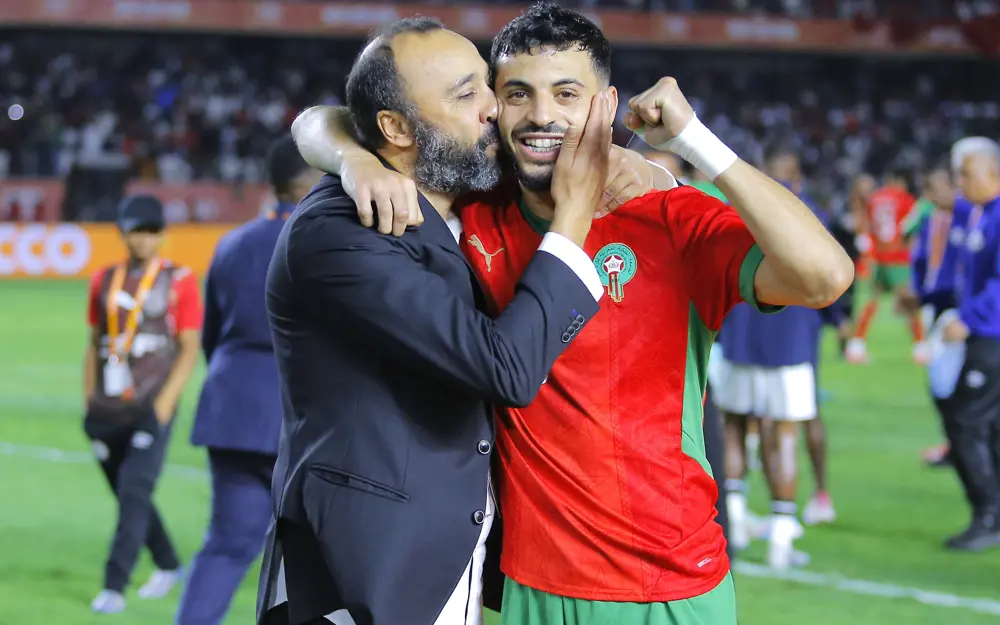
Mirambo’s assessment distilled three coaching principles that travelled from group stage to trophy lift:
-
Define roles early and keep them stable. Clear tasks by position underpin collective resilience when game states fluctuate.
-
Train both gears of transition. Build composure under pressure and the ability to accelerate instantly when space appears.
-
Develop mentality as a habit. Confidence comes from repetition; the more a team practises its identity under stress, the more natural the correct decisions become.
In the end, Morocco’s blend of structure, flexibility and star quality — personified by Lamlaoui — proved just enough against a spirited, tactically mature Madagascar. For the Atlas Lions, a third CHAN title cements a modern dynasty. For the Barea, a silver medal signals that their story is only beginning.

